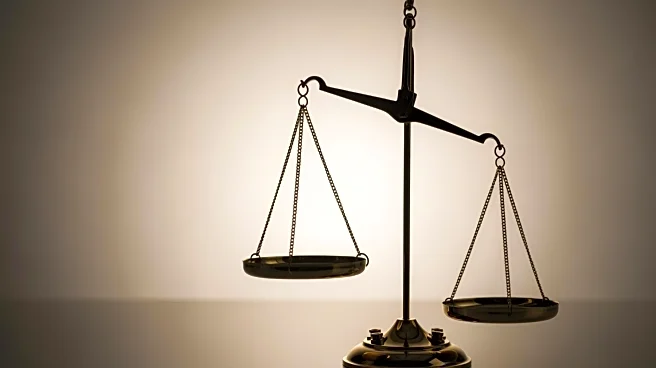What's Happening?
The Supreme Court is currently deliberating on the legality of tariffs imposed by President Trump under the International Emergency Economic Powers Act. During oral arguments, Justice Sonia Sotomayor challenged
the notion that tariffs are not taxes, highlighting their revenue-generating nature. Justice Neil Gorsuch questioned the executive power used to impose these tariffs without congressional approval, citing emergencies like international imbalances and fentanyl influxes. The stock market responded positively, with the Dow closing up 200 points, as investors speculated on a potential partial rollback of tariffs. If the Court rules against the tariffs, the administration may be required to refund the collected revenue, which could boost certain stocks. Wells Fargo identified companies like Caterpillar, Nike, and Best Buy as potential beneficiaries, given their underperformance relative to the S&P 500 and reduced earnings estimates due to tariffs.
Why It's Important?
The Supreme Court's decision on these tariffs could have significant implications for the U.S. economy and the balance of power between the executive branch and Congress. A ruling against the tariffs might lead to refunds of $115-145 billion, affecting the bond market and potentially stabilizing the budget deficit. However, it could also provide a boost to stocks, particularly those that have been negatively impacted by the tariffs. This decision could set a precedent for the extent of executive power in trade matters, influencing future policy decisions and economic strategies. Companies that have suffered due to the tariffs may see improved financial performance, impacting their stock prices and investor confidence.
What's Next?
A ruling from the Supreme Court is expected either next month or in January. If the Court decides against the tariffs, the process of refunding the collected revenue could take several months. This decision will likely prompt reactions from various stakeholders, including political leaders, businesses, and investors, as they adjust to the new economic landscape. The outcome could also influence future legislative and executive actions regarding trade policies and the use of emergency powers.
Beyond the Headlines
The case raises important questions about the separation of powers and the role of the executive branch in economic policy. It highlights the potential for executive overreach and the need for checks and balances in government decision-making. The decision could also impact international relations, as tariffs have been a point of contention with trading partners. Additionally, the economic implications of the ruling could affect consumer prices and inflation, influencing broader economic conditions.








